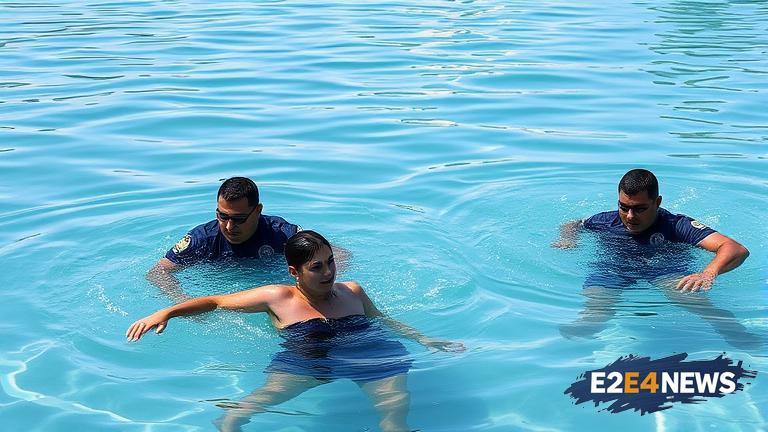A recent investigation has revealed that the majority of police officers in Louisiana are not required to complete swimming training as part of their certification process. This has sparked concerns among lawmakers and safety experts, who argue that such training is essential for officers to effectively respond to water-related emergencies. In Louisiana, where waterways and coastal areas are prevalent, the lack of swimming training among police officers is particularly alarming. The state’s police academy does not include swimming training in its curriculum, and many local police departments do not require their officers to undergo such training. This means that many officers may not be equipped to rescue people from drowning or respond to other water-related emergencies. The issue has gained attention in recent years, particularly in New Orleans, where the city’s proximity to the Mississippi River and Lake Pontchartrain poses unique water-related risks. Lawmakers have introduced legislation to make swimming training mandatory for all police officers in the state, but so far, no such law has been passed. Proponents of the legislation argue that swimming training is a critical component of police officer certification, as it enables officers to respond to emergencies in a safe and effective manner. They also point out that many other states require police officers to undergo swimming training, and that Louisiana’s lack of such a requirement puts its officers at a disadvantage. On the other hand, some police departments have argued that swimming training is not a necessary component of police work, and that other forms of training, such as first aid and CPR, are more relevant. However, safety experts counter that swimming training is essential for officers to be able to respond to water-related emergencies, and that it can be a matter of life and death. The issue has also raised concerns about the safety of police officers themselves, who may be put in harm’s way if they are not properly trained to respond to water-related emergencies. In addition, the lack of swimming training among police officers may also have implications for the public, who may be at risk if officers are not able to respond effectively to water-related emergencies. Overall, the debate over swimming training for police officers in Louisiana highlights the need for comprehensive and effective training programs for law enforcement personnel. It also underscores the importance of prioritizing the safety and well-being of both police officers and the public they serve. As the issue continues to be debated, it is likely that lawmakers and safety experts will continue to push for mandatory swimming training for all police officers in the state. Furthermore, the implementation of such training could have a significant impact on the way police officers respond to water-related emergencies, and could potentially save lives. In conclusion, the lack of swimming training among police officers in Louisiana is a critical issue that requires attention and action from lawmakers and safety experts. By prioritizing the safety and well-being of both police officers and the public, we can work towards creating a more effective and responsive law enforcement system.
